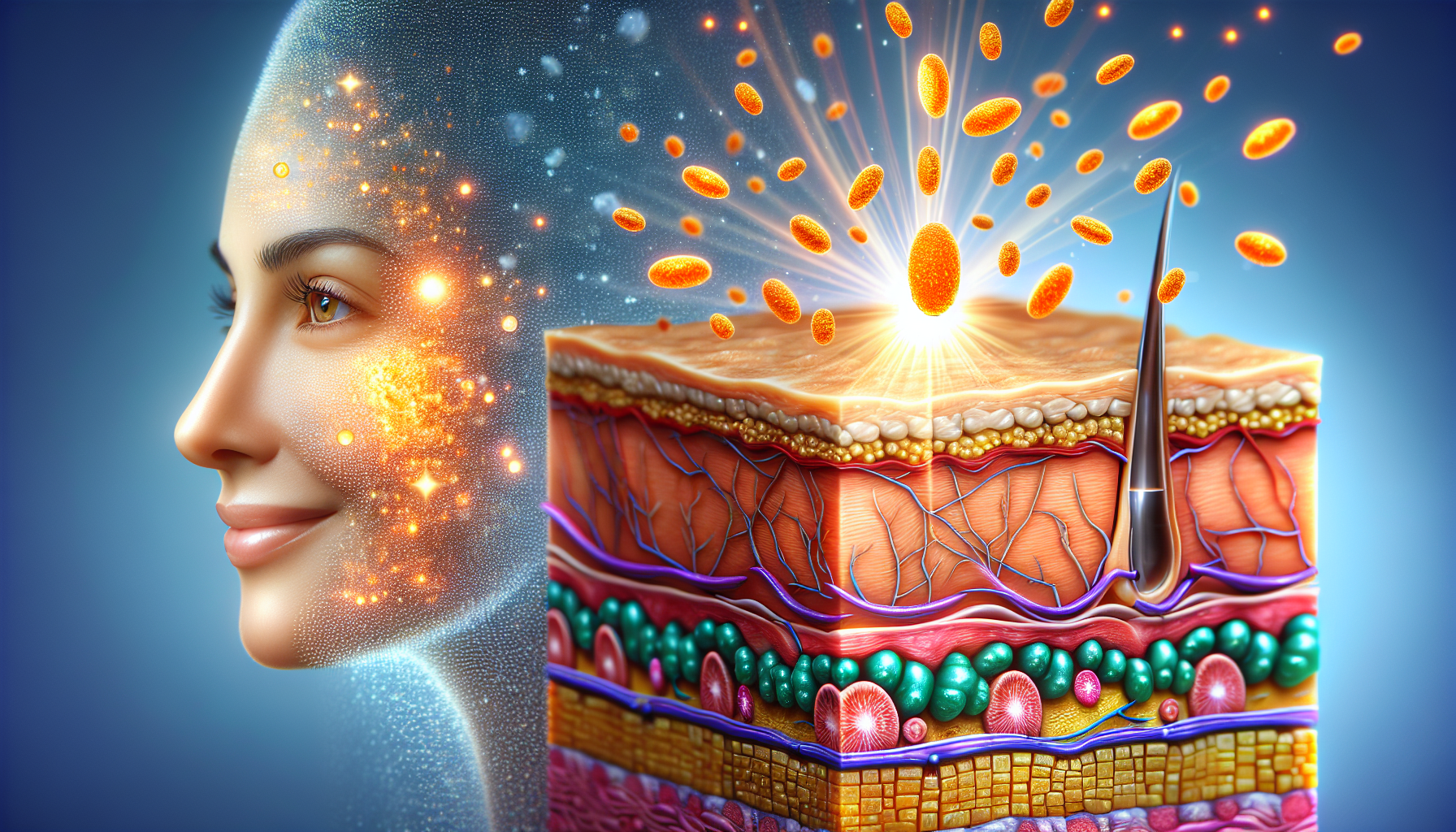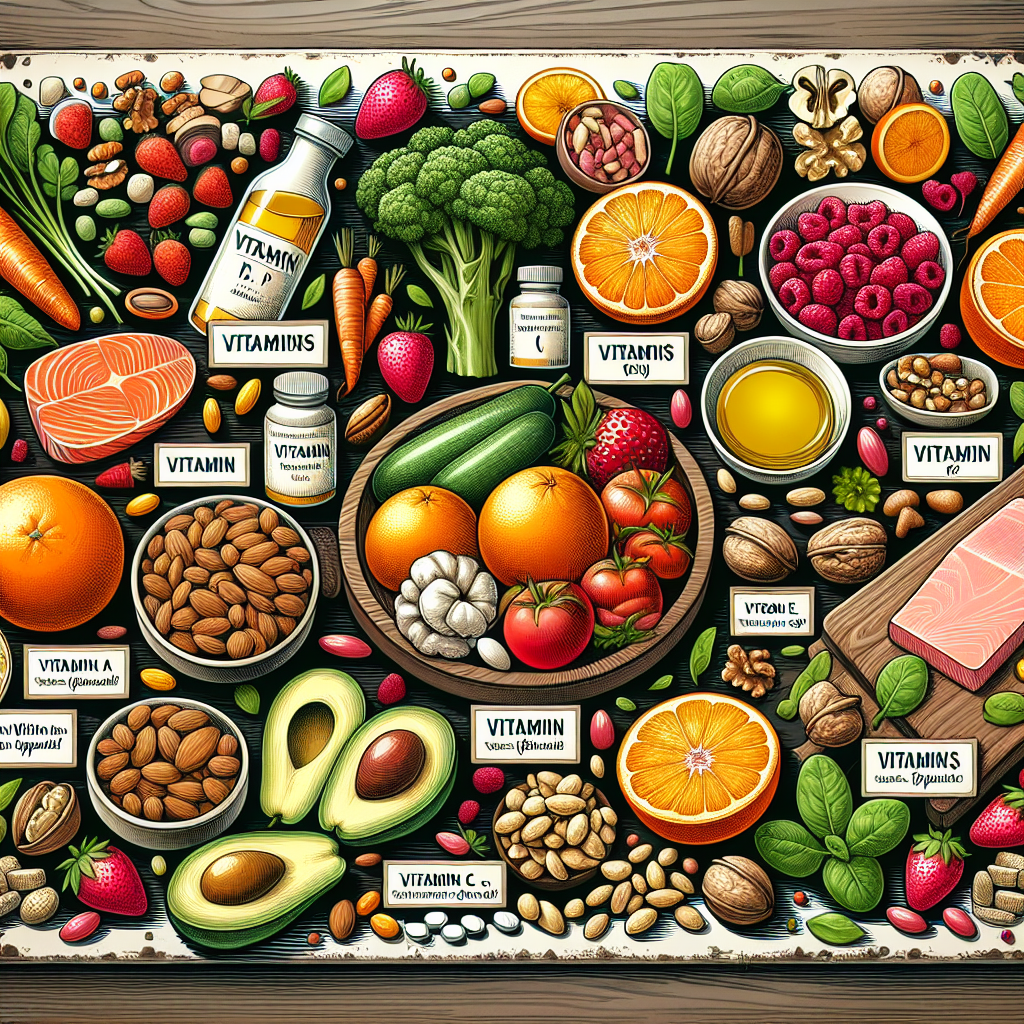Skin health is a critical aspect of overall wellness, reflecting the body’s internal balance and the care we provide it. One of the most fundamental components of maintaining and improving the condition of our skin is understanding the role of vitamins in skin health and rejuvenation. This comprehensive guide explores the science behind how vitamins contribute to skin health, the importance of a vitamin-rich diet, and practical tips for integrating these nutrients into your skin care routine.
The Science of Skin and Vitamins
The skin is the largest organ of the body and serves as a protective barrier against environmental stressors. To perform its functions effectively, the skin requires a range of nutrients, including vitamins. Vitamins are organic compounds that our body needs in small quantities to support essential physiological processes, including those related to skin health.
For those interested in a holistic approach to health, the connection between Skin Health and overall wellness is undeniable. A well-nourished skin surface reflects the state of our internal health and plays a role in the body’s defense system.
Vitamin A
Vitamin A, or retinol, is renowned for its skin-rejuvenating properties. It promotes cell turnover, helps in the treatment of acne, and reduces signs of aging by stimulating collagen production. Retinoids, derivatives of Vitamin A, are commonly found in many topical skin care products due to their ability to improve skin texture and tone.
Vitamin C
As a potent antioxidant, Vitamin C protects the skin from free radicals, unstable molecules that can damage cells and accelerate aging. It also plays a crucial role in the synthesis of collagen, which is vital for skin elasticity and firmness. A bright and even complexion often owes its appearance to Vitamin C’s ability to inhibit melanin production, which can lead to hyperpigmentation.
Vitamin E
Vitamin E is another powerful antioxidant that works in tandem with Vitamin C to provide photoprotection, particularly from UV radiation. It also helps in the healing process of the skin, reducing scars and making it an essential component for those seeking a youthful and radiant skin.
Vitamin D
Often called the "sunshine vitamin," Vitamin D is synthesized in the skin upon exposure to sunlight. It has anti-inflammatory properties and plays a role in skin cell growth, repair, and metabolism. A healthy level of Vitamin D can prevent skin aging and may reduce the risk of developing certain skin conditions.
Vitamin B Complex
The B vitamins, especially niacin (B3), pantothenic acid (B5), and biotin (B7), are crucial for maintaining skin health. Niacin helps to reduce redness and blotchiness, while pantothenic acid can help with wound healing. Biotin is necessary for the health of skin cells and is often touted for its benefits to hair and nail health as well.
Dietary Sources of Skin-Healthy Vitamins
A well-balanced diet rich in fruits, vegetables, lean proteins, and whole grains is key to providing your body with the vitamins it needs for skin health. To harness the skin-rejuvenating powers of vitamins, include the following in your diet:
- Vitamin A: Liver, fish oils, sweet potatoes, carrots, leafy greens, and fortified foods.
- Vitamin C: Citrus fruits, strawberries, bell peppers, broccoli, and Brussels sprouts.
- Vitamin E: Nuts and seeds, spinach, and vegetable oils.
- Vitamin D: Fatty fish, fortified dairy products, and cereals. Sunlight also contributes to Vitamin D synthesis.
- B Vitamins: Whole grains, meats, eggs, nuts, and green leafy vegetables.
For more information on how diet can impact skin health, consider reading "Nutrition and Skin Health: What to Eat for a Glowing Complexion" and "Dietary Habits for Enhancing Skin Glow."
Incorporating Vitamins into Your Skin Care Routine
While a nutritious diet is foundational, topical application of vitamins can directly benefit the skin. Here are some ways to include vitamins in your skin care routine:
Vitamin A
Retinol creams and serums can be introduced into your nightly regimen. Start with a lower concentration to allow your skin to adjust and avoid irritation.
Vitamin C
Apply a Vitamin C serum in the morning before sunscreen to protect against free radicals and environmental damage.
Vitamin E
Look for moisturizers containing Vitamin E, or apply a few drops of Vitamin E oil to particularly dry areas for a boost in hydration and repair.
Vitamin D
While sun exposure helps produce Vitamin D, too much can be harmful. Use a broad-spectrum sunscreen and consider a Vitamin D supplement if needed.
B Complex
Niacinamide, a form of Vitamin B3, is commonly found in serums and creams designed to improve skin barrier function and reduce inflammation.
External Resources for Further Exploration
- The Linus Pauling Institute provides detailed information on the role of micronutrients, including vitamins, in skin health.
- The American Academy of Dermatology offers guidelines on the use of topical retinoids and antioxidants in skin care.
- The National Institutes of Health gives an overview of the nutrients necessary for preventing skin diseases and maintaining skin health.
Additional Considerations
While vitamins play a critical role in skin health, it’s important to remember that they are part of a broader picture. Lifestyle factors such as sleep, stress, hydration, and exercise all contribute to the condition of your skin. For a holistic approach, also explore the "Skin Health and the Importance of Sleep" and "The Role of Hydration in Maintaining Skin Health."
In conclusion, vitamins are indispensable allies in the quest for healthy, youthful skin. By understanding their diverse roles and incorporating them into your diet and skin care routine, you are taking proactive steps towards skin rejuvenation and overall wellness. Remember to consult with a healthcare professional or a dermatologist before making significant changes to your diet or skin care routine, particularly if you have underlying health conditions or skin concerns.



